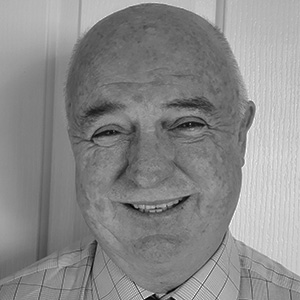Loading component...
At a glance
Gary Champion
Principal, HBA Consulting

There isn’t always a clear delineation between what is an employer’s obligation under workplace health and safety laws and what is a perk for remote employees.
For example, if a company provides home office furniture, it might be a whole lot better than what the employee had previously, and they would be thankful for it and can obviously use the furniture outside of work hours.
However, it would be wrong for an employer to dress up something as a perk instead of being clear about the underpinning rationale for the furniture – to avoid exposure to workplace injury claims.
The kind of perks employees will value often comes down to personality and style of working. Consider flexibility: some employees would love to be able to pick up their kids from school and then work again for a couple of hours in the evening, while some prefer having a solid routine of work and rest.
"It is important to discuss individual circumstances, but there also needs to be a consistent decision-making framework."
It is important to discuss individual circumstances, but there also needs to be a consistent decision-making framework. Otherwise it can lead to inconsistency and potential complaints down the track, when people compare notes about what they have been able to access as a "perk".
Rebecca Hannan
Workplace wellness expert

Providing employees with mindfulness training is a wonderful perk, because it helps reduce stress and encourages being in the moment. There are some really good apps out there, such as Headspace and Calm. Insight Timer is another, and it has a timer function to help with developing a regular practice.
However, when employees are left to their own devices, they may not take up mindfulness sessions, so it’s better to provide them with access to some basic training first. Even one session of 30 minutes could provide a really good introduction.
Similarly, online yoga classes come with a lot of benefits. Yoga helps people manage their stress and get rid of the tightness from sitting at a desk for long periods. You could offer yoga on demand with an app, or virtual classes at set times with other colleagues and a teacher who can provide feedback on positions and so forth.
While I think a yoga mat is too personal a choice to be gifted, you could provide employees with a water bottle and a towel, and it could be branded with the company logo.
"Opportunities for professional development are also a great perk. Something that is particularly relevant is an online course on compassionate leadership. People are really in need of compassion at the moment."
Opportunities for professional development are also a great perk. Something that is particularly relevant is an online course on compassionate leadership. People are really in need of compassion at the moment. It will help managers learn different ways of connecting with people and helping them through difficulties, as well as building a sense of teamwork despite working remotely.
Yulius Santoso
Founder and director, Lucky You Found Me

A care package lets an employee know that their efforts are valued and that they are in management’s thoughts despite not being together in the office.
A note accompanying some “comfort items” works really well: things like coffee or tea, biscuits, a mug and possibly face masks and hand sanitisers. Just be mindful of any dietary requirements.
Many companies insist on providing healthy foods as opposed to a box of doughnuts, but most of us love a treat, too.
You could also set up a social Zoom call with a group of colleagues to unwind and have a chat about non-work-related things while enjoying some of the items from the care package.
"A note with some “comfort items” works really well: things like coffee or tea, biscuits, a mug and possibly face masks and hand sanitisers."
I think gestures like this work really well, because it’s not an extravagant spend at a time when budgets are tight.
Online training and courses are another cost-effective way of investing in your people during this time.
Meet the experts
Gary Champion
Gary Champion is the principal of HBA Consulting in Canberra, with extensive experience in both federal and state public sector environments. Before joining HBA Consulting in 2010, Champion worked as an associate director with a major international consulting firm.
Rebecca Hannan
Rebecca Hannan has three decades of experience in workplace wellness. She is a speaker and trainer, and has worked with organisations in a variety of sectors, including mining, tourism, real estate and healthcare. She was also the first woman to run Western Australia’s 135km Cape to Cape Track in 24 hours.
Yulius Santoso
Yulius Santoso founded the boutique HR and talent agency Lucky You Found Me in Sydney in 2008. It specialises in placing candidates in the accounting and finance industry across Australia and the Asia-Pacific. Santoso is also an academic at the UNSW Business School at the University of New South Wales.
Meet the experts
Gary Champion
Gary Champion is the principal of HBA Consulting in Canberra, with extensive experience in both federal and state public sector environments. Before joining HBA Consulting in 2010, Champion worked as an associate director with a major international consulting firm.
Rebecca Hannan
Rebecca Hannan has three decades of experience in workplace wellness. She is a speaker and trainer, and has worked with organisations in a variety of sectors, including mining, tourism, real estate and healthcare. She was also the first woman to run Western Australia’s 135km Cape to Cape Track in 24 hours.
Yulius Santoso
Yulius Santoso founded the boutique HR and talent agency Lucky You Found Me in Sydney in 2008. It specialises in placing candidates in the accounting and finance industry across Australia and the Asia-Pacific. Santoso is also an academic at the UNSW Business School at the University of New South Wales.

